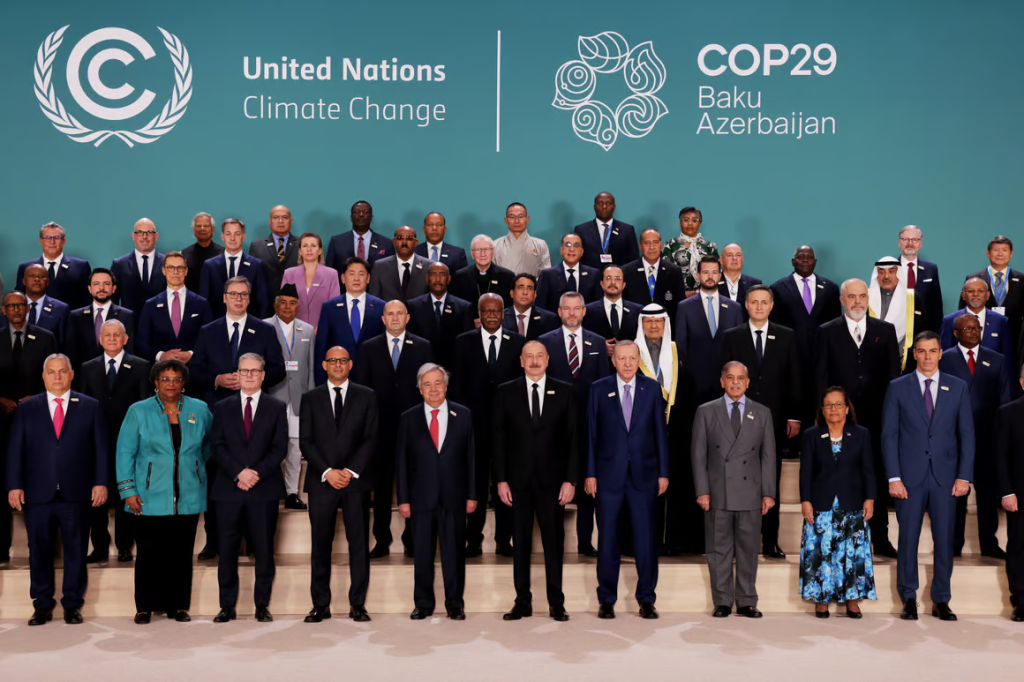Tensions have boiled over at the COP29 climate talks as negotiators from small island states and developing nations rejected a proposed climate finance deal and walked out of discussions on Saturday.
The group accused the COP29 presidency, led by Azerbaijan, of sidelining their concerns during the negotiations.
“”We’ve just walked out. We came here to this COP for a fair deal. We feel that we haven’t been heard,” said Cedric Schuster, chairman of the Alliance of Small Island States, a coalition of nations facing rising sea levels.
The talks have entered overtime, with rich and developing nations locked in heated discussions over funding to help developing countries combat climate change and adapt to its effects.

A new rough draft deal proposing $300 billion annually in climate finance by 2035 was widely rejected, particularly by African nations and small island states.
Evans Njewa, chair of the Least Developed Countries bloc, called the proposal “unacceptable” and stressed the need for developing nations to regroup.
The walkout has underscored frustrations with what some are calling a “war of attrition” by wealthier nations.
Juan Carlos Monterrey Gomez, Panama’s chief negotiator, accused richer countries of using delay tactics to weaken developing nations.
“Every minute that passes we are going to just keep getting weaker and weaker and weaker. They don’t have that issue. They have massive delegations,” he said.
The dispute has also spilled over outside meeting rooms, with activists confronting US climate envoy John Podesta, accusing the United States of not contributing its fair share to global climate finance.
The last official draft on Friday pledged $250 billion annually by 2035, far short of the $1 trillion experts say is necessary.
“The presidency has to put something far better on the table,” Teresa Anderson of Action Aid said.


